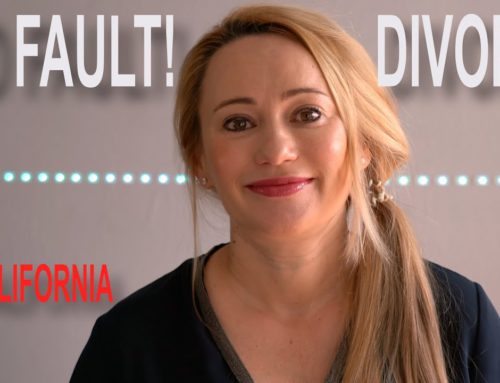Please note that all online divorce platforms are not the same. BlissDivorce is the only complete online divorce solution, including property division, child custody, spousal support, and AI-powered Digital Divorce Mediation.
Divorce, an often challenging life event, can become even more stressful when the process is unnecessarily drawn out. While a lack of cooperation, child-related matters, and complex financial issues can prolong divorce, in some cases, the lawyers hired to represent the parties can drag out the process.
This post discusses the lengthening of divorce proceedings, and how lawyers can sometimes contribute this problem. It offers insights on navigating this issue if you are going through marriage dissolution.
Lengthy Divorce Proceedings
Divorces can be time-consuming and overwhelming, especially if they are contested. When you are filing for a divorce, you and your partner will need to agree on various divorce matters, including child custody and property division.
If you cannot reach an agreement, the divorce can be prolonged, causing financial strain and emotional distress for those involved. If you hire an attorney, you will need to schedule meetings and adhere to their schedule to discuss divorce matters. This can be costly as lawyers have high hourly rates.
Luckily, online divorce platforms offer a fast and convenient solution. They enable you to easily file for a divorce and prepare your paperwork for the court without fees and divorce delays.

Source: shutterstock.com / Photo Contributor: aulamas93
Factors Contributing to Prolonged Proceedings
Adversarial approach
Many lawyers try to collaborate with opposing counsel to resolve issues quickly. However, some attorneys take an adversarial stance that can contribute to prolonged divorce proceedings. The adversarial approach refers to the lawyer’s focus on winning at all costs, often leading to lengthy court battles and increased animosity between spouses. While advocating for the client’s best interests is essential, lawyers should seek fast and amicable resolutions when possible.
Financial gain
It is the professional and ethical responsibility of lawyers to put the interest of their clients first. However, there is an unfortunate incentive in divorce proceedings: the longer the process takes, the more money the lawyers make.
Does this mean most lawyers will try to drag out a case? Absolutely not. Most put their clients’ interest first. But there have been reports of lawyers driving up the cost of divorce. So it’s something to keep an eye out for.
If your lawyer wants to fight your spouse on every issue, keeps asking for additional retainer fees and/or never pushes back on your requests (your lawyer should tell you when something is a bad idea), you might have an issue. If you run into this situation, have a heart-to-heart with your lawyer. Or you might want to consult with another lawyer or even contact your local bar association.
Reliance on litigation
Litigation is a necessary tool in some divorce cases. However, it is something that is almost always best to avoid.
Lawyers who prioritize litigation over settlement negotiations can prolong divorce. Mutually agreeable resolutions such as negotiation and mediation can provide many benefits for the clients, including substantial cost savings. If your lawyer prefers litigation without trying these options it may cost you.
Lack of communication
Effective communication between the spouses and the lawyers is essential during divorce proceedings. That said, when lawyers fail to respond to inquiries, it can lead to unnecessary delays. They may also take longer to respond to offers or may push off further negotiations, which can lead to potential delays in the divorce proceedings.
Taking many cases
Lawyers who take too many cases may struggle to give each client the attention they need. This can lead to delayed fillings, missed deadlines, and postponed dates. All of these factors can lead to a prolonged divorce process, which can be very costly. When hiring a divorce lawyer, it’s a good idea to ask about case load and the amount of attention you’ll receive.
Complex cases
In complex cases involving regarding child custody disputes, intricate financial arguments, and substantial assets, the divorce process can naturally become more complicated. Hence, the lawyers may need more time to navigate these matters, potentially leading to a longer duration.
Comprehensive legal strategies
Thorough legal representation is essential for every legal practitioner. However, your legal strategy should be appropriate for the circumstances of your case. Keep an eye out for motions and legal maneuvers that extend the process, as well as expert witnesses and analysis that add complexity. These tactics may be necessary, but as the client you have the right to question your attorney about the cost/benefit in your case.

Source: shutterstock.com / Photo Contributor: L.O.N Dslr Camera
The Impact of Prolonged Divorce Proceedings
After describing the potential reasons divorce proceedings can drag out, let’s discuss the impact this can have on you and your spouse as individuals involved in the process.
Financial strain
As mentioned, prolonged divorce proceedings often result in high legal fees. If there are disputes between you and your spouse, such as unresolved division of assets or spousal support, there will be ongoing financial uncertainty until the issues have been resolved and the divorce is finalized.
Emotional stress
Aside from financial strain, the emotional toll the divorce can cause is also substantial. Prolonged proceedings can potentially increase anxiety and negatively impact both of your well-being as individuals going through a divorce.
On top of that, delays in the divorce process can hinder your ability to move forward with your life, as it can impact decisions regarding housing, career changes, etc. If you have children, prolonged divorce proceedings can be detrimental for them.
Online Divorce vs. Divorce With a Lawyer
A crucial decision to make when filing for a divorce is whether to pursue an online divorce or hire a lawyer. Here are some crucial differences between the two options.
Cost-effectiveness
In general, online divorce services are a more affordable option than hiring a lawyer. Online divorce services often offer cost-effective solutions for couples seeking a faster and more straightforward divorce process.
When hiring lawyers, the longer the divorce process is, the more you will need to pay for their time and services. The rates for divorce attorneys are high and are based on hourly payments rather than on a fixed rate. You don’t know how much you’ll end up paying. In contrast, with online divorce you know what you’ll pay because prices are fixed.
Convenience
Online divorce services aim to provide a streamlined process for each client. Online divorce is a convenient way to end a marriage as it saves the divorcing couple time and money for litigation processes.
In contrast, hiring a lawyer often involves scheduling meetings and discussing solutions regarding different divorce matters. Busy lawyers who are in high demand can be challenging to reach, which can further delay the divorce process.
Time-efficiency
Via online divorce platforms, you will never be worried about why is my divorce taking so long! This is because such platforms are designed to expedite the process of preparing and submitting the necessary paperwork.
Unlike online divorce platforms, when hiring an attorney, you need to adhere to their availability and schedule. They are often very busy and take many cases, which may lead to potential delays in the divorce proceedings.

Source: shutterstock.com / Photo Contributor: rawf8
Conclusion
As a significant event in one’s life, divorce requires careful consideration of the legal process.. In cases where legal representation contributes to unnecessary delays, you can seek alternative legal approaches. This includes filing for a divorce on a platform like BlissDivorce for a fast and cost-effective divorce process.



